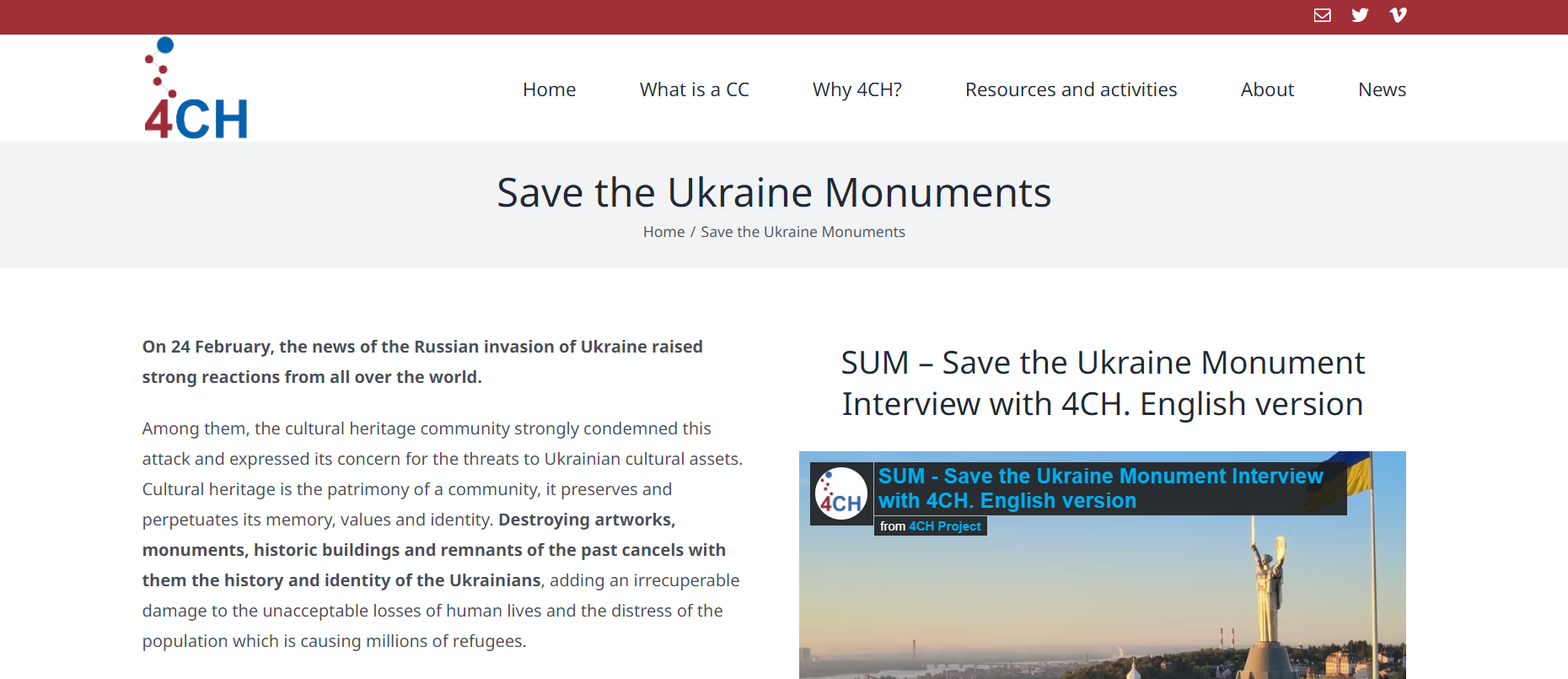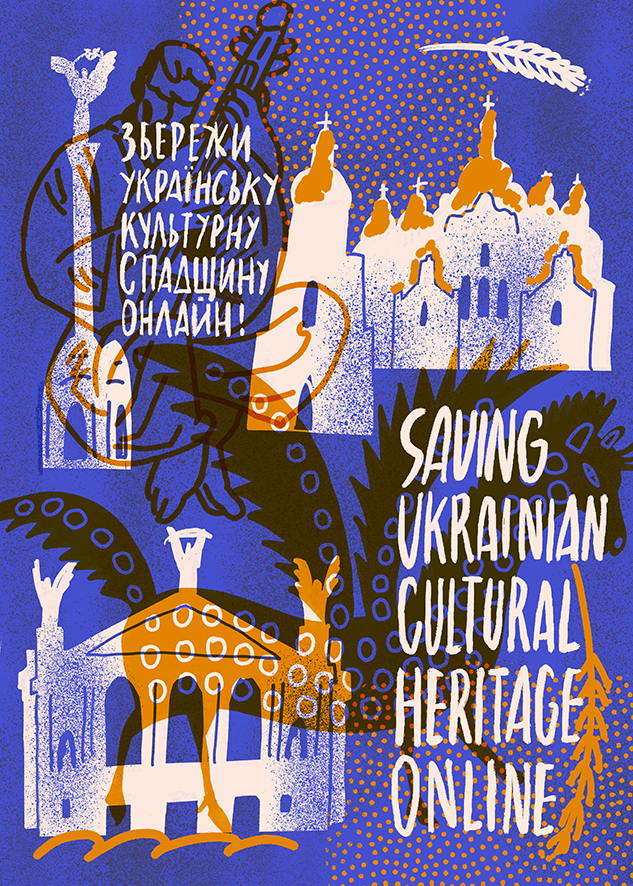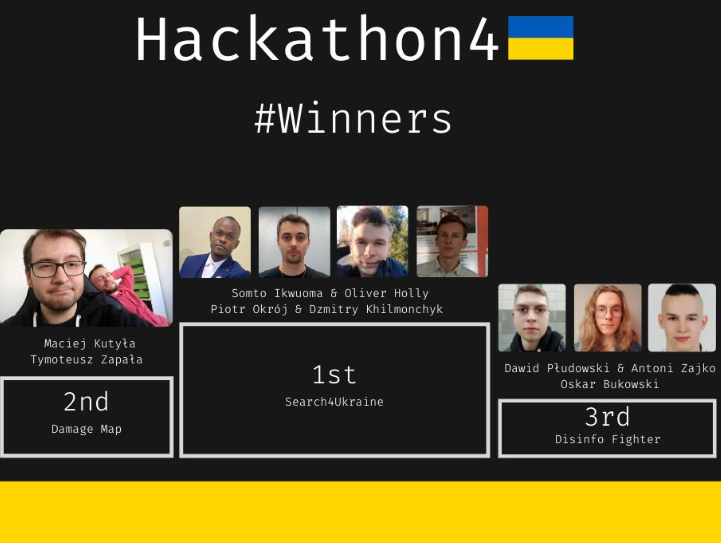
Unit 4: Open innovation in academia-society cooperation
As the Ukrainian war unfolds, European Higher Education Institutions (HEIs) and their research and professional staff have come up with a range of inclusive and innovative ideas to provide humanitarian assistance and help preserve Ukraine’s cultural heritage. Lessons learnt in the efforts to support Ukrainian cultural heritage will be an added value to the cultural heritage community of experts as well as citizens, as more emphasis is given to participatory and citizen driven action.
As mentioned in Unit 1, open innovation is about involving more public and private actors, entities, researchers and citizens in the process of generating innovative ideas and solutions. This spirit of inclusiveness and shared responsibility in tackling social issues and challenges can function as a catalyst in times of crisis and humanitarian aid. In the sub-units below, you will be introduced to outstanding initiatives undertaken by academia that combine open innovation with digital technologies and citizens’ engagement.
4.1 The 4CH initiative
One of the most rapid and effective initiatives that has been carried out to safeguard Ukrainian cultural heritage is the 4CH – SUM (Save Ukrainian Monuments) initiative organised by the consortium of the 4CH project. The 4CH project established a European Competence Centre for the Conservation of Cultural Heritage in January 2021.
In order to provide immediate assistance to the Ukrainian cultural sector, the 4CH consortium has accepted datasets from researchers, cultural heritage institutions, museums, archives, libraries, companies and individuals in Ukraine and placed them in a secure digital repository in Europe. As soon as the conflict de-escalates, all datasets will be returned to the legitimate owners.

4CH project, Save the Ukraine Monuments webpage
Integral to this initiative are several European research centres and universities, such as the PIN research agency at the University of Florence, the Italian National Institute of Nuclear Physics, the Centre for Contemporary and Digital History at the University of Luxembourg, the University of Tours and the University of Bologna.
The wide network of actors involved in this initiative, either important European institutions or researchers and people working in the Ukrainian cultural sector, have guaranteed the successful and safe storage of more than 50 Terabytes of data, despite difficulties in gathering these resources in war-ravaged territories.
Learn more about the 4CH initiative here.
Reflection question: Explore the 4CH initiative’s website and in your reflective diary note down key information about the project. Do you think such an initiative is useful?
4.2 SUCHO
Saving Ukrainian Cultural Heritage Online (SUCHO) is another outstanding initiative because of its dynamic work and the impressive number of people involved. The team comprises more than 1,300 cultural heritage professionals including librarians, archivists, researchers, and programmers, that come together (virtually) to archive “at-risk [web]sites, digital content, and data in Ukrainian cultural heritage institutions while the country is under attack,” according to their website.
Volunteers can sign up to help digitise important, historic, or otherwise unique documents, photos, and websites for posterity. Far from being merely an initiative that considers web archiving as another project for the research community, what triggers SUCHO’s volunteer action is clearly stated by one of its founders, Quinn Dombrowski:
“But just in case these backups will be needed, we want to be able to put the files back where they belong: into the hands of Ukrainian librarians, archivists and curators.” (Volunteers Unite to Archive Ukrainian Cultural Heritage, March 8, 2022)
The coordinating team behind this initiative includes Quinn Dombrowski, HE staff from Stanford University, Anna E. Kijas from Tufts University and Sebastian Majstorovic, a digital historian working in the Austrian Centre for Digital Humanities and Cultural Heritage. Thanks to their advanced IT facilities and specialised staff, HEIs can play an important role in promoting the storage and preservation of cultural heritage assets, thus guaranteeing a safe place for them in times of crisis.
Furthermore, what makes the SUCHO initiative even more interesting and inclusive is that it provides the necessary resources, tools and tutorials to better guide volunteers in this cultural heritage protection journey, thus eliminating any distinctions between the experienced and newcomers in the field of digitally enhanced culture preservation.

SUCHO poster
Dan Cohen, dean of libraries and vice provost for information collaboration at Northeastern University said of SUCHO,
“There’s a long history of these digital libraries that synthesize, preserve, and make widely available the records of regions, states, nations, people, and communities—SUCHO is just the latest version”, (Callahan, March 2022)
What makes SUCHO a successful initiative is its academia-society cooperation approach that facilitated its diffusion in just a short time, gathering volunteers from all over the world. SUCHO is also a great example of academia opening up to society and working together for a common cause, which in this case is the protection of Ukrainian cultural heritage under threat.
A dedicated webinar to further disseminate and propagate the work of the SUCHO initiative, as well as to launch its own initiative Saving Ukrainian Cultural Heritage in Digital (SaveUCHdigital), was organised by the Digital Competence Framework for Ukrainian teachers and other citizens (dComFra) project. The webinar was a trigger for discussion among cultural heritage professionals and researchers, mostly associated with academia environments in Ukraine and abroad, who shared their experiences in cultural heritage preservation through digital technologies.
You can follow the webinar’s discussion by clicking here.
Reflection question: Watch the webinar and in your reflective diary note down your most important take-aways from the webinar.
4.3 A Hackathon4Ukraine
Another outstanding initiative organised by programmers from the Warsaw University of Technology and Imperial College London, was the hackathon event “Hackathon4Ukraine”. This took place on March 19, 2022, and called on all hackathon enthusiasts to come up with ideas that could be transformed into apps to help and support Ukrainian people.
The #Hackathon4Ukraine initiative gathered a total of 19 teams who cooperated closely to develop digital solutions. You can find records of the teams’ work on the GitHub repository. The three winning teams were:
-
“Search4Ukraine”, an app that simplifies internet search in the Ukrainian language for citizens in foreign countries
-
“Damage Map”, an app that allows residents who remain in Ukraine to report damage to public buildings and apartment blocks
-
“Disinfo Fighter”, an app that serves as a propaganda filter and flags social media posts that have a high probability of being fake news.

A Hackathon4Ukraine winning teams
Working with data, the participating teams concentrated on developing app solutions that speak directly to the current humanitarian needs of the population, as well as taking into consideration the more negative side of the internet and social media where fake news and misinformation can exacerbate tensions in already critical situations.
Unit 4 Quiz
The educational journey in which you have been participating is coming to an end. The last unit is ahead of you. It presents a concrete example of an open innovation initiative for cultural heritage in times of crisis. Please remember to have your reflective diary at hand to note your thoughts and answers to reflection questions which, as you already know, are posted in different places in the unit. As previously explained, this diary will enrich your educational journey and will become an invaluable resource for the future for you to refer back to what you have learnt throughout the whole module.
Further readings:
- Callahan, M. (March 25, 2022), The other casualty of the war in Ukraine-Architecture, News@Northeastern, https://news.northeastern.edu/2022/03/25/ukraine-architecture-destruction/
- 4CH project, Save the Ukraine Monuments, https://www.4ch-project.eu/sum/
- SUCHO, https://www.sucho.org/


